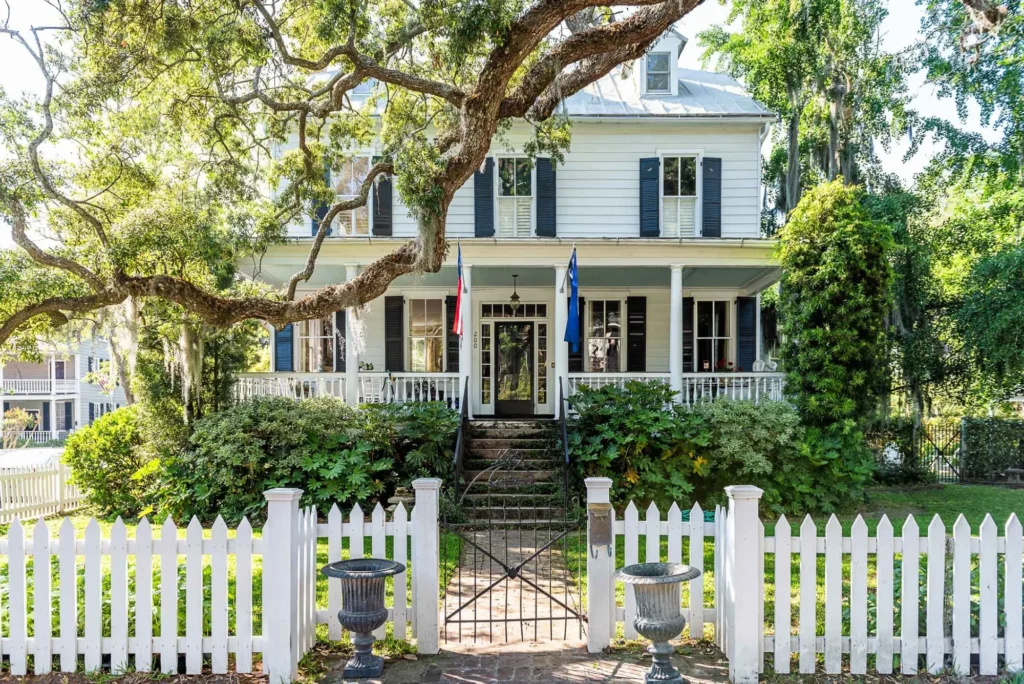
Scorpion Control and Prevention in Lowcountry, SC
Scorpions are venomous arthropods that can cause real concern when they start sharing space with your family. In the Lowcountry of South Carolina, the warm, humid climate, shaded landscaping, and raised coastal homes with ventilated crawl spaces all create perfect pockets where scorpions and their insect prey thrive. Store-bought sprays almost never solve the problem, because scorpions hide deep inside cracks and voids during the day and only come out at night. The surest way to find lasting relief is with a professional plan that identifies every entry point, treats the areas where scorpions actually live, and reinforces your home to block them from returning.
At All U Need Pest Control, we specialize in scorpion control across the Lowcountry—from Summerville, Goose Creek, and Moncks Corner down through Charleston, Mount Pleasant, and Johns Island, as well as barrier islands like Sullivan’s Island, Folly Beach, and Isle of Palms. We’ve also protected homes in Cane Bay, Hanahan, and Daniel Island. Since 2003, our team has delivered fast, long-lasting results with clear communication and careful attention to the way Lowcountry homes are built. We customize solutions for your property and landscape while always keeping your family and pets in mind.
Below, you’ll learn how scorpions get established, what effective scorpion control looks like in the Lowcountry, and how All U Need Pest Control can make your home more comfortable and secure. If you’re ready for help now, call 1 (888) 239-BUGS.
Pest Control Services in Lowcountry, SC
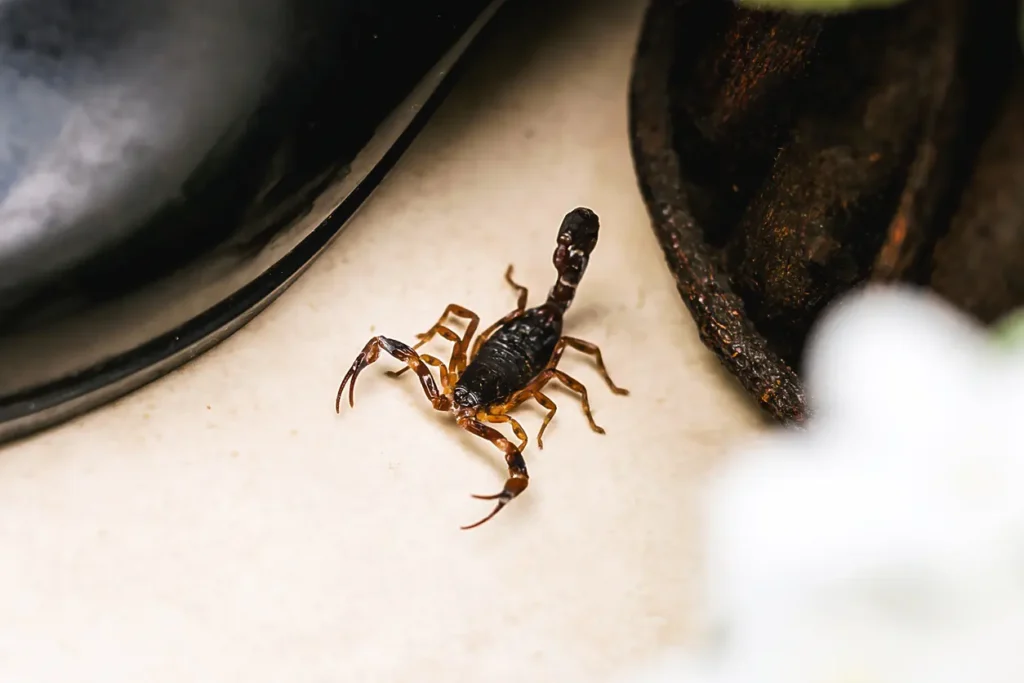
How to Get Rid of Scorpions in Lowcountry, SC
Several species of scorpions are found in the Southeast. Around the Lowcountry, the southern devil (unstriped) scorpion is the most common native species, though “hitchhiker” species can occasionally arrive through landscaping deliveries, shipments, or travel. Regardless of which type you’re dealing with, the solution is the same: inspect carefully, identify properly, treat targeted harborage, and seal up the home’s envelope.
- Inspection first. We track where scorpions hide and travel—crawl-space openings, porch steps and lattice, expansion joints, meter boxes, AC line gaps, attic and gable vents, and unsealed doors and windows.
- Clear identification. The species and activity level guide our product choices and exclusion steps. Correct ID prevents wasted effort in low-yield areas.
- Targeted treatments. We apply professional-grade products into cracks, crevices, and voids, and pair this with habitat adjustments that also reduce the insect populations scorpions feed on.
- Exclusion and prevention. Once active sites are treated, we seal gaps, strengthen door thresholds, screen vents with pest-rated mesh, and suggest moisture and lighting changes to reduce future infestations.
Because scorpions sting in self-defense, fast action keeps your family safe. Their sting may cause pain and burning, and in sensitive individuals, more serious symptoms can appear. Seek medical attention right away if symptoms are severe.
Inspection
We begin with a crawl-to-eave survey. Technicians check perimeter cracks, brick pier gaps, crawl-space doors, porch steps, lattice, garage thresholds, and utility penetrations. We also inspect attic and gable vents, soffit seams, and shaded landscape pockets—such as ligustrum, jasmine, and azalea beds—where insect prey concentrates. Inside, we examine baseboards, toe-kicks, closet corners, and plumbing pass-throughs.
Identification
Accurate ID makes a big difference. We confirm whether the activity points to southern devil scorpions, which are most common in the region, or a non-native species. This shapes placement, product selection, and follow-up timing.
Targeted Treatments
Our focus is precision. We apply professional formulations directly into cracks and voids where scorpions live and travel, rather than spraying broadly across living spaces. We may add desiccant dusts in dry voids and apply discreet exterior treatments along expansion joints, thresholds, and structural seams.
Prevention
After the knockdown, we close the gaps. That includes sealing utility penetrations, adjusting door sweeps, installing breathable weep-hole inserts, screening attic and gable vents with pest mesh, and reducing night lighting near doors. We also suggest trimming dense vegetation along foundations so there are fewer shaded harborage sites.
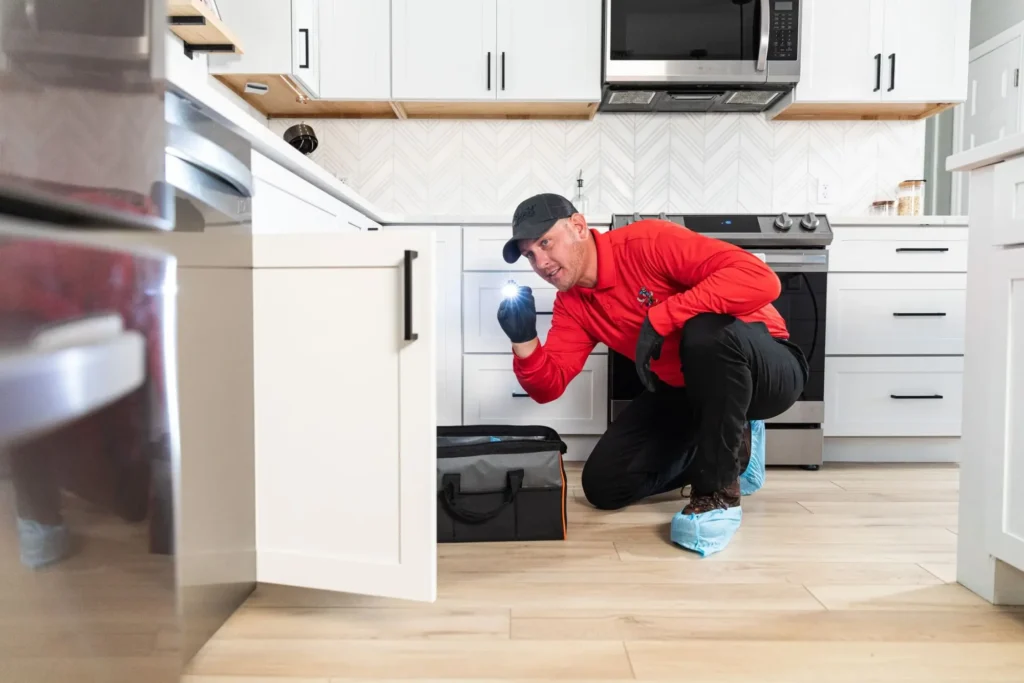
Scorpion Treatment in Lowcountry, SC
Our Lowcountry scorpion program combines building science with Integrated Pest Management (IPM)—addressing moisture, access points, and food sources along with targeted treatments.
Exclusion
Exclusion provides long-term relief. We seal cracks and gaps using durable materials (metal mesh plus long-life sealant), reinforce crawl-space doors, and add breathable weep-hole inserts that maintain ventilation while blocking pests. For raised coastal homes, we strengthen lattice and step joints—common scorpion on-ramps into subflooring.
Habitat Modification
Scorpions follow food and shelter. We reduce both by trimming vegetation off the structure, pulling pine straw or mulch back a few inches, elevating stored items, and correcting drainage so soil dries more quickly after rainstorms or king tides. A cleaner, drier perimeter means fewer insects—and fewer scorpions.
Natural Treatments
In sensitive areas, botanical-based repellents may help discourage scouting, and desiccant dusts placed in sealed voids can add long-term suppression. These tools support—but never replace—core exclusion and precision treatments.
Chemical Treatments
When activity is moderate to high, we apply low-odor, professional-grade formulations exactly where scorpions travel—expansion joints, thresholds, slab seams, and void openings—while keeping treatments away from pollinators and open water. Indoors, we restrict service to cracks and crevices only, never broadcast spraying across living areas.
Integrated Pest Management
IPM is about monitoring and adjusting. We record every placement, track activity across follow-ups, and adjust based on weather, site conditions, and your home’s design. Expect a step-by-step plan that clears today’s population and resists tomorrow’s comeback.
- Inspect the home and landscape to pinpoint harborage and entry points.
- Treat using precise, family-conscious applications.
- Exclude and maintain with seasonal checkups or light exterior treatments.
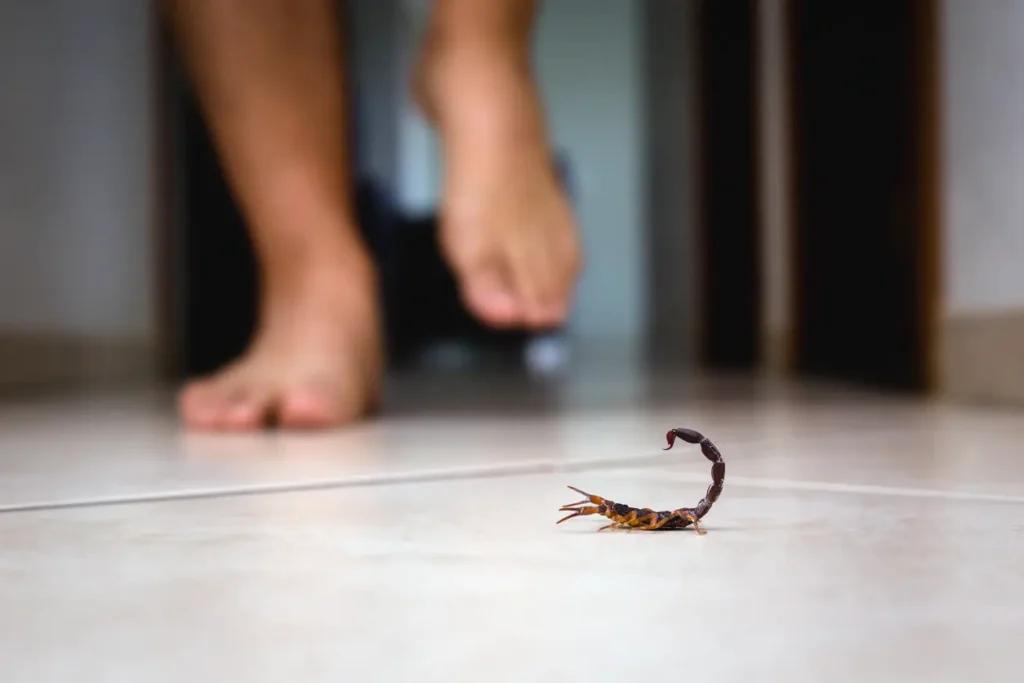
Signs of a Scorpion Infestation in Lowcountry, SC
Catching the warning signs early helps you address the problem before it grows.
Scorpion Sightings
Nighttime sightings along baseboards, in bathrooms, or near garage and porch thresholds are common. Outdoors, look beneath planters, stacked lumber, and debris piles; under steps; and around AC pads and hose bibs.
- Crawl spaces and pier perimeters.
- Attics and gable or soffit junctions.
- Under kitchen and bathroom cabinets (plumbing penetrations).
- Beneath rocks, patio pavers, and stacked firewood.
Scorpion Droppings
Small, dark droppings can collect near favorite resting spots or entry gaps. If you see concentrated droppings in crawl spaces or along garage walls, it’s time for inspection.
Shed Exoskeletons
Cast skins, often left in corners or behind stored items, are signs of scorpions growing and reproducing nearby.
Nearby Construction or Yard Changes
Renovations, heavy tree trimming, fresh mulch deliveries, or neighborhood construction can displace scorpions and drive them toward your home.
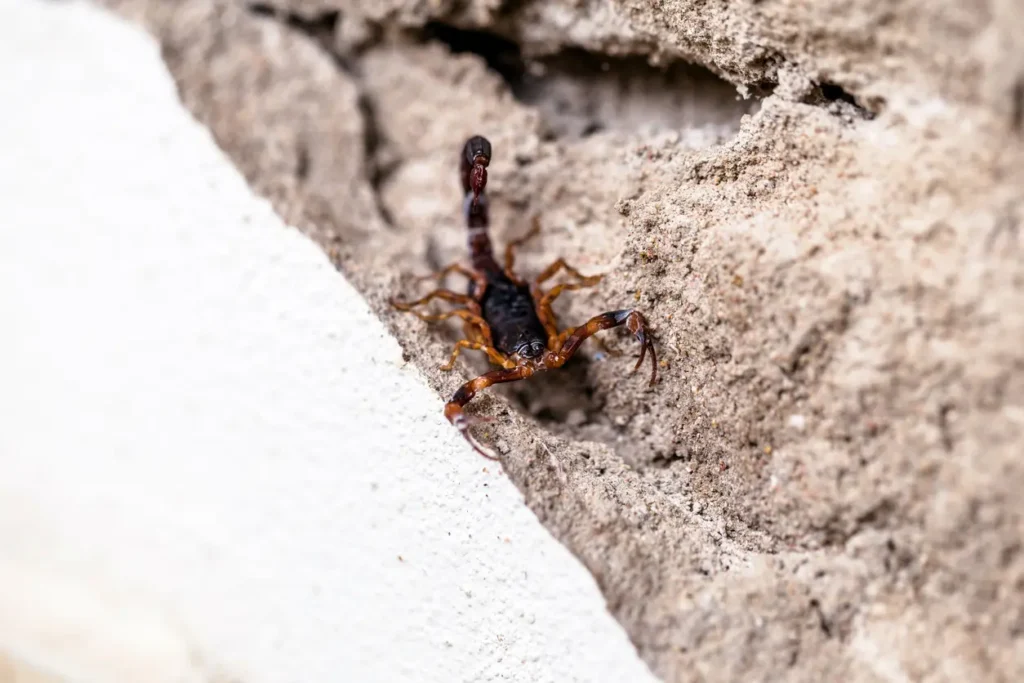
How to Check for Scorpions
Check at night with a UV flashlight—scorpions fluoresce under ultraviolet light and are easier to spot. Move slowly, and wear closed-toe shoes and gloves.
- Inspect crawl-space entries, porch steps, and lattice seams.
- Scan baseboards, closets, and under-sink cabinets indoors.
- Check stacked wood, pavers, and stored items outside.
Never handle a live scorpion with bare hands. If you must collect a sample, use long tweezers or forceps and a sealed container. For stings, clean the site, apply a cold pack, and seek medical attention if severe symptoms appear, such as difficulty breathing or swelling.
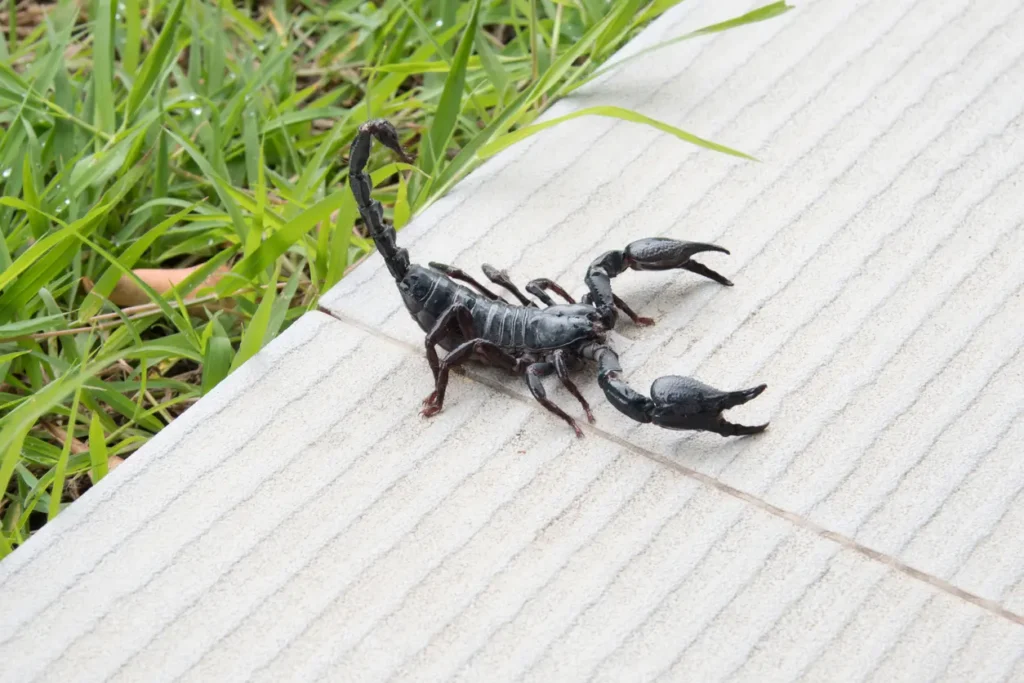
Types of Scorpions in Lowcountry, SC
Southern Devil (Unstriped) Scorpion
This is the most common native species in South Carolina. Usually small to medium in size, it prefers cool, dark spots like crawl-space edges, under debris, and inside narrow structural gaps.
Occasional Hitchhikers (Transported Species)
Other scorpion types can sometimes arrive in coastal homes via freight, landscaping materials, or travel. Correct ID is key to choosing the right treatment and follow-up plan.
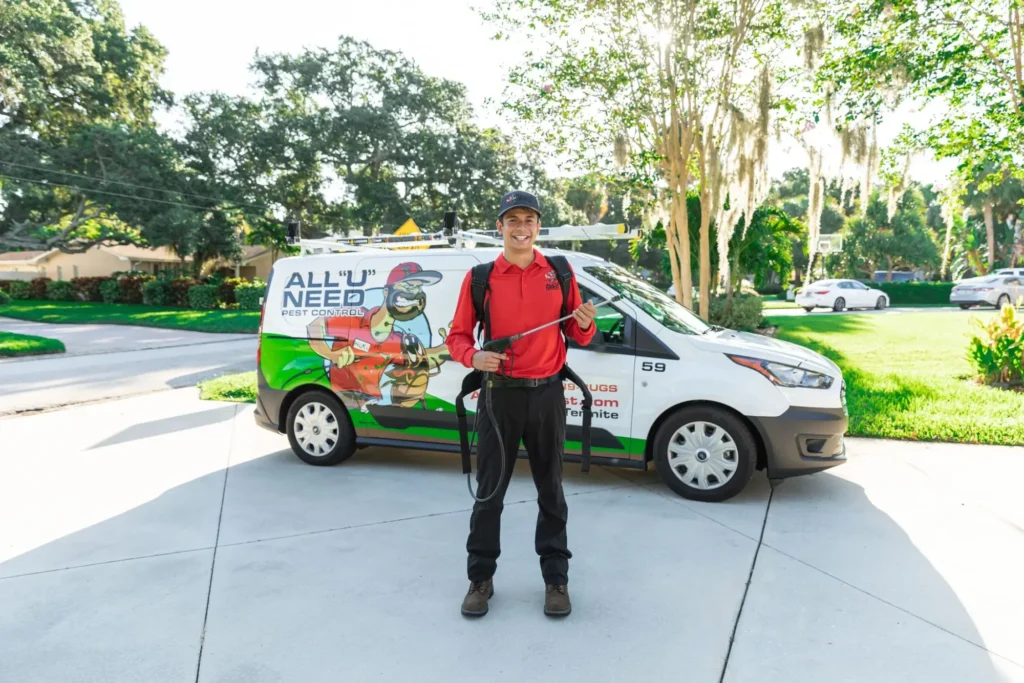
Scorpion Prevention in Lowcountry, SC
Practical steps keep scorpions from gaining a foothold in the first place.
- Seal the shell. Install door sweeps, weatherstripping, and caulk; close utility entries with metal mesh and sealant; screen attic vents with pest-rated mesh; and fit breathable inserts in weep holes.
- Reduce harborage. Elevate storage, thin dense shrubs, keep stacked materials and firewood off the ground, and pull mulch or pine straw away from siding.
- Dry the perimeter. Extend downspouts, repair gutter leaks, improve grading, and ensure crawl spaces are properly ventilated.
- Dim the draw. Use warmer porch bulbs and reposition bright lights away from doors to reduce insect prey—and the scorpions that follow them.
- Control other pests. Reducing roaches, crickets, and other insects cuts off the food supply that keeps scorpions around.
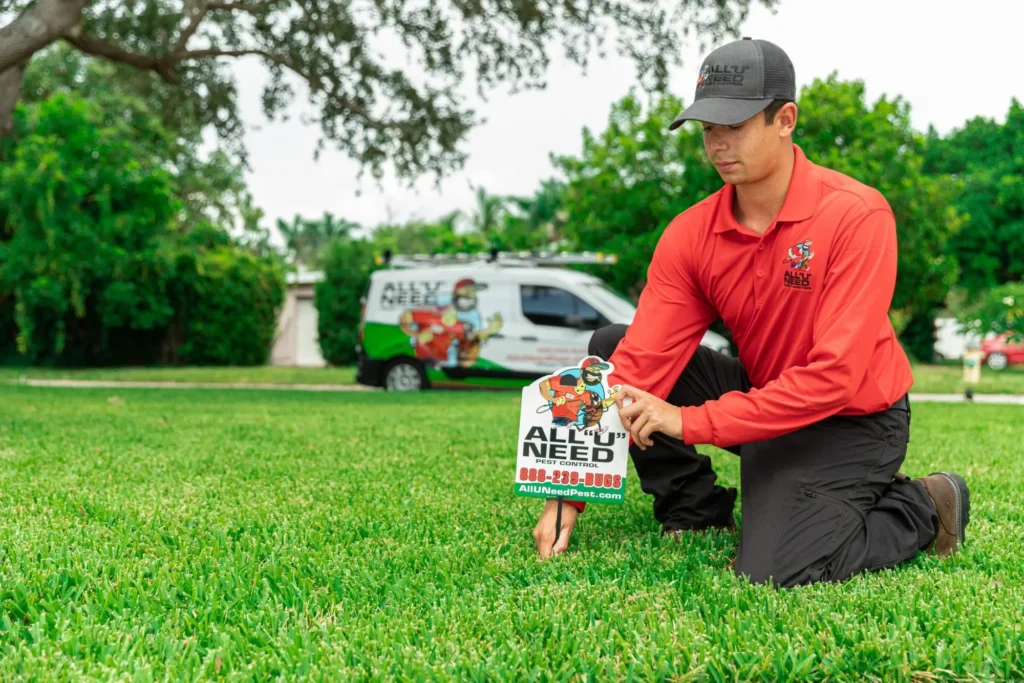
Choose All U Need Pest Control for Scorpion Prevention in Lowcountry, SC
Scorpions don’t have to be part of Lowcountry living. All U Need Pest Control provides a tailored approach—precise treatments, durable exclusions, and moisture and landscaping fixes that make your home an unattractive target. You’ll receive transparent pricing, clear preparation guidance, and fast follow-through. And if activity persists, we’ll return and adjust until your home is secure again.
Call 1 (888) 239-BUGS or reach out online for a free inspection. We’ll inspect, eliminate, and fortify—so you can enjoy backyard barbecues, oyster roasts, football games, and porch evenings without unwelcome surprises.
Location Contact:
419 N Cedar St Summerville, SC 29483
Get Directions for 419 N Cedar StSummerville, SC 29483 on Google Maps843-489-8818
Call All "U" Need Pest Control